The Music Licensing Process "The Basics"
Music licensing is the process of allowing someone to borrow or "license" a song for use in his or her media project. If you are using a song without obtaining permission from the performer and/or the writer of the song you are stealing copyrighted material. It is the same thing as walking into a store and taking something without paying for it. Everyday individuals and companies use music without securing the necessary licenses from the copyright owners.
The Golden Rule of Licensing: If you don't own or control it, you likely need a license to use it. There are a few exceptions (such as public domain compositions), though the golden rule is a common sense guideline that can help determine when licenses are needed.
Generally, music licensing can be broken down to a two step process:
Step 1:
The process starts with identifying the song(s) that you would like to use for your media project. This project could be anything from a major motion picture, to a local TV commercial, to a personal home video you are sharing with your friends and family on YouTube. It doesn’t matter what the project is, if you are including music, the song needs to be approved for use by the owner of the music composition “the Publisher*”(There are exceptions for this, if the song is in the Public Domain**) and by the owner of the Master Recording***.
Step 2:
Determine who owns the publishing and master recording for the selected song(s) and secure these licenses.
--
Take a look at the Music Licensing Checklist - Provided by the American Society of Composers Authors and Publishers
The Golden Rule of Licensing: If you don't own or control it, you likely need a license to use it. There are a few exceptions (such as public domain compositions), though the golden rule is a common sense guideline that can help determine when licenses are needed.
Generally, music licensing can be broken down to a two step process:
Step 1:
The process starts with identifying the song(s) that you would like to use for your media project. This project could be anything from a major motion picture, to a local TV commercial, to a personal home video you are sharing with your friends and family on YouTube. It doesn’t matter what the project is, if you are including music, the song needs to be approved for use by the owner of the music composition “the Publisher*”(There are exceptions for this, if the song is in the Public Domain**) and by the owner of the Master Recording***.
Step 2:
Determine who owns the publishing and master recording for the selected song(s) and secure these licenses.
--
Take a look at the Music Licensing Checklist - Provided by the American Society of Composers Authors and Publishers
* Publisher: A music publisher owns or administers musical works written by songwriters. Publishing companies range from large, multi-national corporations to individual, self-published songwriters. Music publishers also register and enforce the copyrights they administer.
** Public Domain: Public domain works (as they relate to music) are compositions that are not under copyright or whose term has expired. While a composition may have fallen into the public domain, an arrangement of that composition that possesses sufficient originality may be considered a new composition and thus, protected by copyright.
*** Master Recording / Sound Recording Copyright: A sound recording refers to the copyright in a recording as distinguished from the copyright in a song. The sound recording is the result of recording music, words or other sounds onto a tape, record, CD, etc. The copyright encompasses what you hear: the artist singing, the musicians playing, and the entire production). A record label usually owns the sound recording copyright.
** Public Domain: Public domain works (as they relate to music) are compositions that are not under copyright or whose term has expired. While a composition may have fallen into the public domain, an arrangement of that composition that possesses sufficient originality may be considered a new composition and thus, protected by copyright.
*** Master Recording / Sound Recording Copyright: A sound recording refers to the copyright in a recording as distinguished from the copyright in a song. The sound recording is the result of recording music, words or other sounds onto a tape, record, CD, etc. The copyright encompasses what you hear: the artist singing, the musicians playing, and the entire production). A record label usually owns the sound recording copyright.
